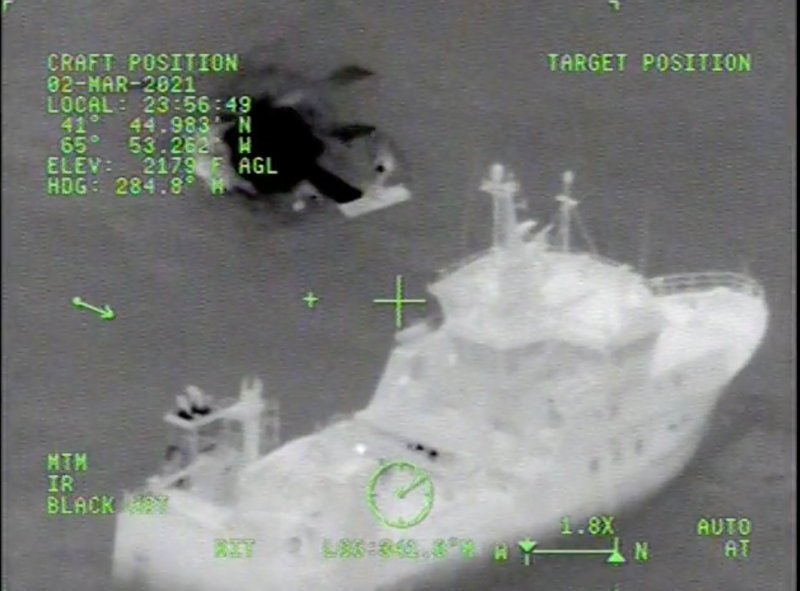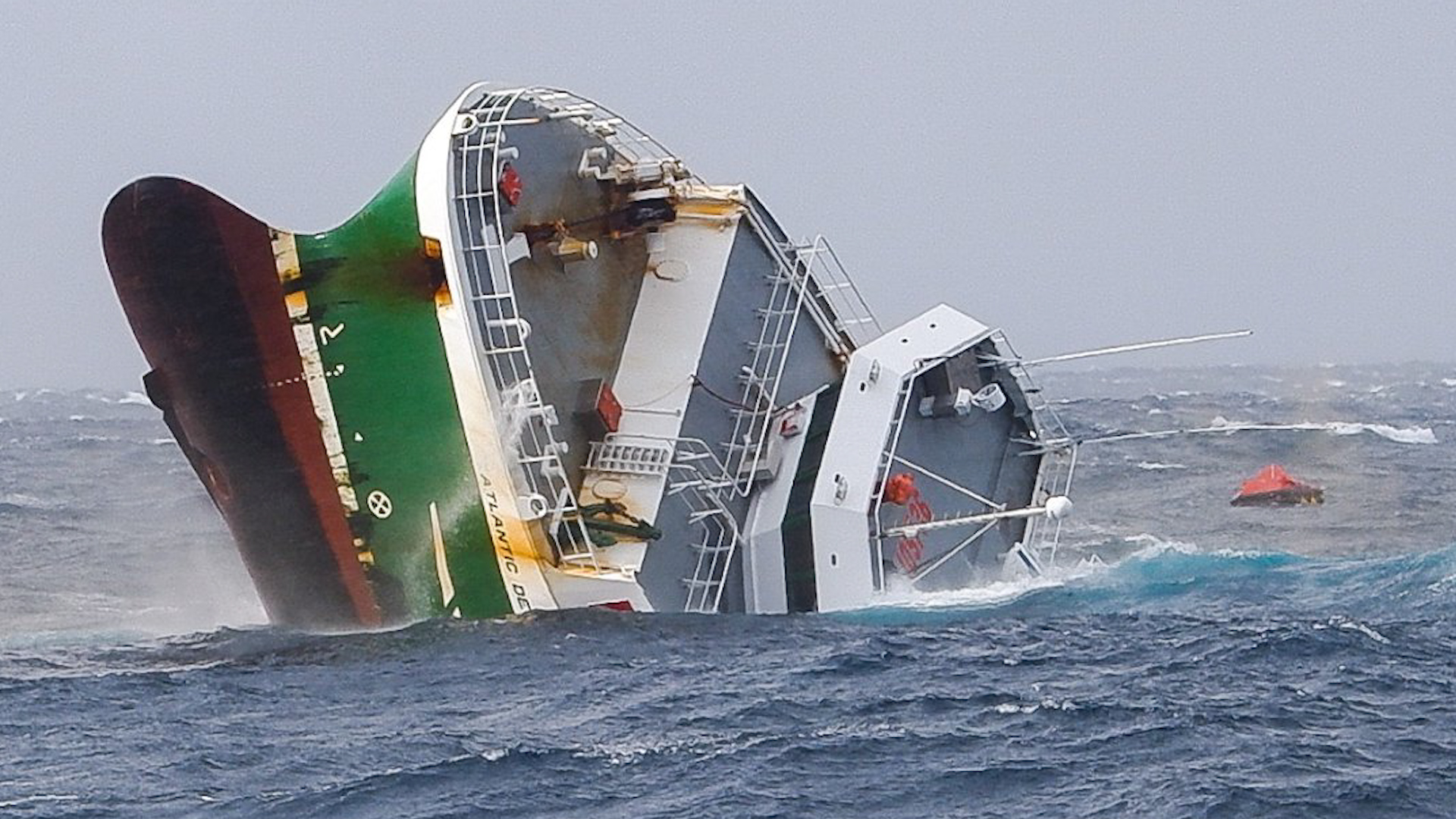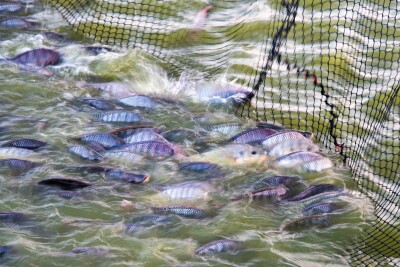A joint operation by the Canadian and U.S. Coasts Guards and Royal Canadian Air Force evacuated the crew of the 143-foot Canadian scallop vessel Atlantic Destiny as it lay disabled by fire and sinking more than 130 miles offshore.
At 7:05 p.m. Eastern time Tuesday, the Joint Rescue Coordination Center at Halifax, Nova Scotia, notified watchstanders at the U.S. Coast Guard First District command center in Boston that the vessel was taking on water after a fire on board south of Halifax. Conditions were reported of 35 mph winds and 26-foot seas.
An HC-144 Ocean Sentry fixed-wing crew and two MH-60 Jayhawk helicopter crews launched from Coast Guard Air Station Cape Cod, Mass. Meanwhile, Royal Canadian Air Force CH-149 Cormorant helicopter crew from 14 Wing Greenwood in Nova Scotia arrived to hoist six crewmembers from the vessel, and drop off two search and rescue technicians to help the crew in dewatering the vessel.
A Canadian CC-130 Hercules, also from 14 Wing Greenwood, provided top cover for the operation.
The U.S. Jayhawk crews hoisted another 21 fishermen between the two helicopters. All crewmembers were taken to Yarmouth, Nova Scotia, where they were transferred for medical assessment.
"This was one of the craziest rescues that I've been a part of, for the situation and how many hoisted we had to do and how challenging it was trying to calm the aircraft to go get the survivors picked up," Phillip Morales, an avionics electrician first class, with the U.S. Coast Guard, told the CBC. "It was really, really challenging."

The four remaining crew members and two Canadian Coast Guard technicians ended their efforts to dewater the vessel and were transferred to the 205’ Canadian Coast Guard fisheries patrol vessel Cape Roger shortly after 7 a.m. Wednesday. The Atlantic Destiny sank at 9:36 a.m.
A fire had broken out the evening before, possibly in the engine room, knocking out the ship’s power, Martin Sullivan, the CEO of vessel owner Ocean Choice International, told CBC's Information Morning Wednesday. The Atlantic Destiny was one of six boats in the company’s fleet.
“We have a strong connection with our Canadian partners,” said Capt. Wes Hester, the First District chief of response, in a joint statement with Canadian authorities. “We conduct joint training every year with our partners in Greenwood, and our crew’s consistent training, coordinated responses, and international partnership saved 31 lives yesterday. That monumental effort is a testament to the hard work and sacrifice of everyone involved.”
“We were very fortunate to have had the support of the U.S. Coast Guard during this rescue. Their ability to provide such valuable support in the saving of the lives of these fishermen is very much appreciated and demonstrates how important our relationship is in providing search and rescue services to both Canada and the United States.” Maj. Kristin MacDonald, officer in charge at the Joint Rescue Coordination Center Halifax.







